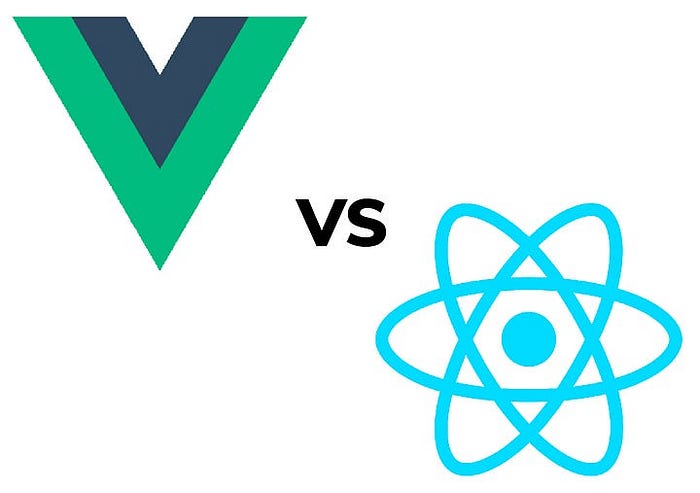Choosing Between Vue and React in 2023: A Comprehensive Guide
Written on
Chapter 1: Introduction to Vue vs React
Organizations consistently aim to develop top-notch software swiftly. To fulfill these objectives, tech teams and vendors often deliberate over various JavaScript frameworks and libraries to determine the best fit for their projects.
Based on our observations, Vue and React are among the most rapidly advancing technologies for front-end development. Numerous factors contribute to their widespread acclaim among developers and business leaders alike. In this article, we will compare Vue.js and React.js, focusing on their differences, similarities, security aspects, popularity, scalability, and the estimated costs of development.

Chapter 2: General Overview of React and Vue
React Overview
React is a JavaScript library for building user interfaces, maintained by Facebook and the open-source community. Its speed, scalability, and simplicity make it a preferred choice for many Fortune 500 companies, particularly for single-page applications. With React, developers can create both user-friendly interfaces and intricate applications.
#### Advantages of React
Ease of Learning and Use
The primary reason for React's swift rise in popularity is its relative ease of use compared to other frameworks like Vue or Angular. Experienced developers with a solid understanding of JavaScript can quickly become proficient in React.
Reusable Components
React applications are composed of multiple reusable components, each encapsulating its own logic and rendering a portion of HTML. This modularity simplifies both maintenance and development.
Performance
React employs a virtual DOM, which enhances app performance by minimizing direct interactions with the browser's DOM, ensuring smooth and efficient operations.
#### Disadvantages of React
Documentation Challenges
React evolves rapidly, often outpacing its documentation. Although this fast pace is beneficial, it can create challenges for developers who might need to rely on unofficial guides.
Vue Overview
Vue.js was created by Evan You, a former Google employee, who sought to develop a lightweight framework that incorporates the best elements of Angular, React, and Ember. Vue is designed for interface-focused tasks and excels in complex front-end operations.
#### Advantages of Vue
Simplicity
Vue's goal is to maximize results with minimal effort. It utilizes single-file components that combine JavaScript, CSS, and HTML, enabling developers to achieve high functionality with relatively few lines of code.
Progressiveness
Vue integrates smoothly with other frameworks such as React and Angular, allowing developers to progressively enhance existing projects without major overhauls.
MVVM Architecture
Vue’s Model-View-ViewModel (MVVM) architecture improves the user interface by streamlining event-driven programming, allowing for easier updates without complete redesigns.
#### Disadvantages of Vue
Limited Scalability
Currently, Vue primarily caters to single-page applications and simple UIs rather than large-scale, complex applications.
Comparing Vue and React
#### Similarities
Vue and React share several attributes:
- Both utilize virtual DOMs.
- They offer reactive and composable view components.
- Version migrations are straightforward.
- They have extensive libraries and tools available.
- Both ensure good performance and speed, supported by large communities.
#### Key Differences
While Vue is a framework, React is classified as a library. React relies heavily on JavaScript, whereas Vue incorporates traditional web technologies. React exclusively uses JSX, while Vue supports both JSX and HTML templates. Furthermore, Vue provides a range of community-built solutions, while React focuses on components and DOM manipulation.
Chapter 3: Popularity and Community Support
The popularity of a framework or library is often linked to the availability of skilled developers and the quality of third-party resources. For instance, React, being backed by Facebook, boasts a vast community and a wealth of tutorials, libraries, and tools. According to the Stack Overflow Developer Survey 2022, React ranks as the second most popular web framework, with Vue in third place.
Community Metrics:
- GitHub stars: React (207k) vs. Vue (204k)
- Active sites: React (11.9 million) vs. Vue (1.7 million)
- Open job positions in the US: React (67k) vs. Vue (10k)
For salaries, React developers in the US average around $82k annually, whereas Vue developers earn about $88k, making both technologies appealing for Eastern European markets.
Documentation and Performance
React's documentation covers basic and advanced concepts but often lags behind updates. In contrast, Vue has well-structured documentation that effectively guides developers through building applications.
Both frameworks exhibit similar performance levels due to their virtual DOM implementations, though nuances arise during component updates, where Vue automatically tracks changes, while React requires manual optimization.
Tooling and State Management
React features a third-party CLI tool called create-react-app, simplifying the development process. Vue CLI offers a more integrated experience for setting up projects without worrying about folder structures.
State management approaches are also similar, with React typically using Redux, while Vue has introduced Pinia as its official state management library.
Chapter 4: Choosing the Right Tool
Both Vue and React are exceptional for various applications, featuring clean code, rapid development, and strong community support. However, React's larger talent pool may facilitate quicker team assembly.
Conclusion
In the ongoing debate of React vs. Vue, it's clear that React currently holds a more prominent position in the market due to its continuous development and community backing. However, Vue's simplicity and efficiency cannot be overlooked.
Ultimately, the decision may hinge on specific project requirements and team expertise. We hope this comparison aids you in making an informed choice for your next project.
In the video "React vs Vue in 2023 - which is Best?", the nuances of both frameworks are explored, helping viewers understand their unique strengths.
The "Vue vs React (2024) - Make a RIGHT Choice (Difference Explained)" video delves deeper into the distinctions and practical applications of each framework.